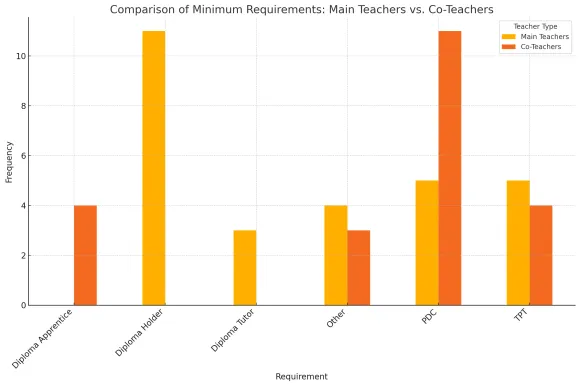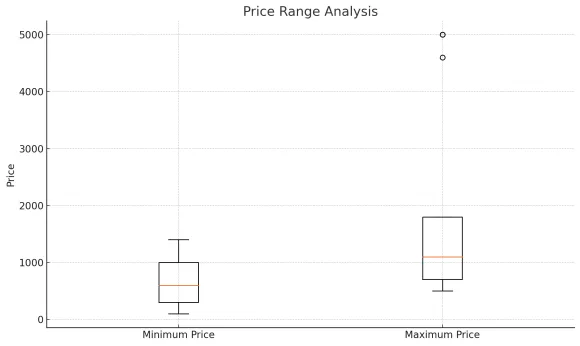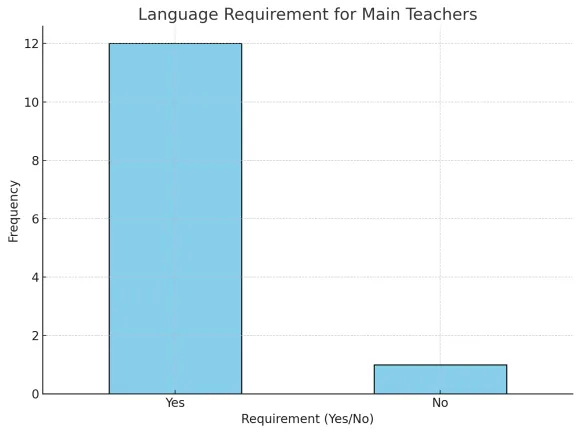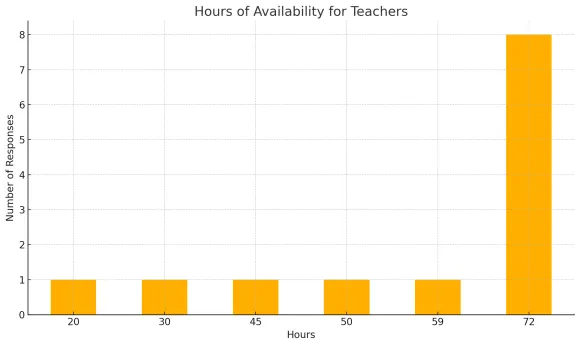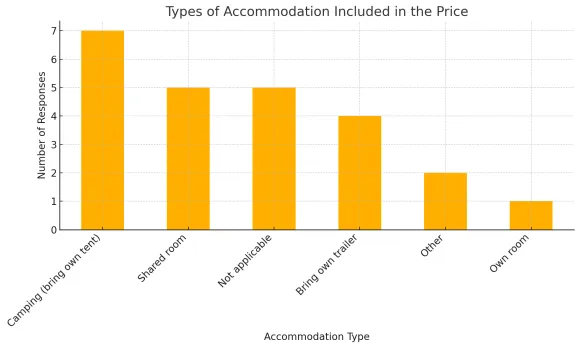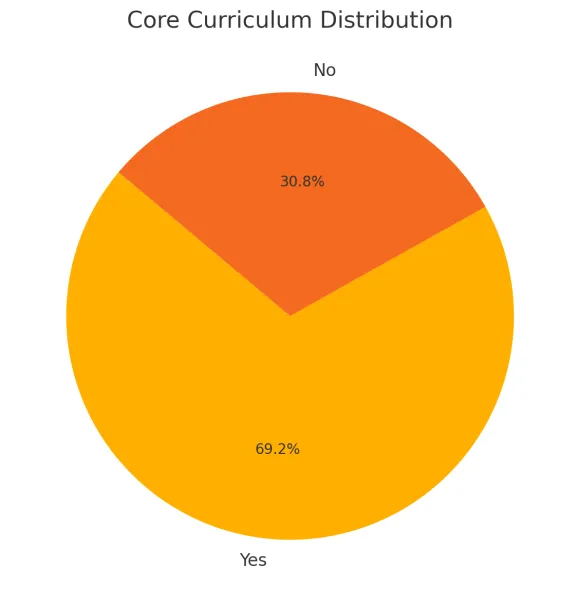PDC requirements
The Permaculture Design Course (PDC) is the cornerstone of permaculture education, but what defines its requirements can vary widely. To better understand the expectations and standards across different offerings, we analyzed responses from a recent survey on PDC requirements. This data offers valuable insights into teacher availability, pricing, and accommodation options, as well as the presence of a core curriculum.
Below, we present key findings from the survey alongside visualizations that highlight these trends. Whether you're a PDC teacher, organizer, or participant, this analysis can help shed light on how PDCs are structured and what learners can expect.
You can still fill in the survey and contribute to our findings
The chart shows that main teachers are typically expected to meet higher and more specific standards, such as holding a diploma or other formal certifications. This reflects their pivotal role in leading the course and ensuring its quality aligns with professional standards.
The requirements for co-teachers tend to be less stringent, focusing on supporting roles. However, some overlap exists with main teacher qualifications, suggesting that co-teachers often bring substantial expertise to the team.
The price range analysis reveals significant variation in the cost of PDCs, with minimum prices starting as low as 300,- € and maximum prices reaching 5.000,- €. This wide range reflects differences in course structure, included services and accommodation. Courses with higher prices may offer comprehensive packages, including premium accommodations or extended learning opportunities, while lower-cost courses might focus on accessibility with fewer extras. The mean is at 1.269,- €.
The majority of PDCs prioritize language comprehension among teaching staff to ensure effective communication and coordination during the course. The outlier response may reflect unique circumstances, such as bilingual teaching environments or reliance on translation.
The minimum contact time with the main teacher shows a broad range of required hours for the main teacher availability, with most courses falling between 30 and 72 hours.
This variability reflects the diversity in course structures and teaching philosophies. Courses with lower main teacher contact time may rely more on self-guided study, multiple co-teachers, group work, etc. The data suggests that while PDCs aim to balance flexibility and quality, they prioritize sufficient main teacher engagement to ensure meaningful learning experiences for participants.
The accommodation analysis shows that the most common options included in the course price are camping (bring your own tent) and shared room arrangements. These choices emphasize the communal and immersive nature of PDCs, where participants often live closely together to foster collaboration and learning. While some courses provide more private accommodations, the prevalence of simple options reflects a focus on sustainability and keeping costs accessible. The variety in accommodations demonstrates flexibility, catering to participants with different needs and expectations.
The core curriculum distribution shows a roughly 1/3 to 2/3 split between courses that have a defined core curriculum and those that do not. This suggests a diverse approach among PDC providers: many adhere to standardized content to ensure consistent learning outcomes, while others may prioritize flexibility, tailoring their courses to local contexts or specific participant needs. The presence of a core curriculum often reflects an emphasis on formalized education and accreditation, whereas its absence could indicate a more experimental or context-driven teaching approach. This variation highlights the adaptability of PDCs to meet a range of educational philosophies and goals.

